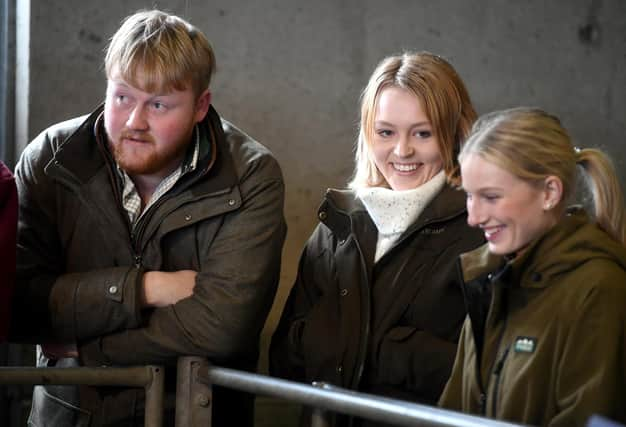A Lincolnshire agriculture student – who may have struggled to get into the sector as she’s not from an agricultural background - is to get a helping hand from farming entrepreneur and TV celebrity Kaleb Cooper.
Caitlyn Bartlett, 19, from Brothertoft near Boston, was one of two winners of the inaugural Kaleb Cooper Agriculture Bursary for students at Gloucestershire’s Royal Agricultural University (RAU) where she is in her first year studying for a BSc in Agriculture.
Kaleb came to fame in the Amazon TV series Clarkson’s Farm in 2021 during which he tries to teach the former Top Gear presenter how to manage the farm he bought in 2018.
Caitlyn recently met the man himself when she and the other winner – fellow RAU student Caitlin Oxton, 20, from Clifton in Bedfordshire - joined Kaleb at Cirencester Livestock Market, near the RAU, to help him buy two calves which will join the herd at his farm near Chipping Norton in Oxfordshire.
Speaking after the market Kaleb said: “It’s been an amazing day. It’s really exciting to have the two students with me - to introduce them to their first cattle market and actually buy their first cattle.
“I didn’t start bidding on cattle until I was 24 because I didn’t have the confidence. If I can give them the confidence at 19 and 20 then that’s what investing in people and future farming generations is all about.
“Cailtyn bought a calf for me – and they both had a bid. To see the smile on their faces was great fun. And this is just the start for them – and I hope they enjoy farming as much as I do!”
The two girls were selected from a batch of applications for the first ever bursary which was launched earlier this year at the RAU’s Cirencester campus.
The bursary, which was open to RAU undergraduate agriculture students, will provide Caitlyn and Caitlin with a £3,000 payment as well as the opportunity for a work placement with either Kaleb himself or one of his industry partners.
Caitlyn said: “It was a great experience and amazing to be able to bid. I bid for one of the calves and won which was really exciting. It was the one I wanted – it had really big eyes! I wasn’t really keeping track of the price but I think I spent about £150!
“Coming from a non-farming background, it can be challenging to enter an industry that is often based on what contacts you have so I was really pleased to have been selected as one of the bursary winners.
“This bursary will not only help me to gain further vital industry experience and knowledge through the work placement with Kaleb himself but will really help open up many different opportunities for me in the future within the agricultural sector.”
Self-made agricultural entrepreneur and farm contractor, Kaleb, has been working in and around farms since he was a schoolboy and is a passionate supporter of UK agriculture and opportunities for young people to enter the sector.
Launching the bursary to students at the Cirencester university in May he said: “Farming is who I am. Encouraging the younger generation into agriculture has always been so important to me.
“I feel lucky that I knew my path from such an early age and want to help spread that passion and drive. Launching this bursary means so much, as it can support students who want to pursue an agricultural career or who might be struggling to get into farming.”
Kaleb was keen that the bursary was given to a student who came from a non-agricultural background, as he himself did. He said: “Having come from a non-farming background I believe agriculture can be for anybody! I know there’s so much potential for young people to have brilliant careers in agriculture. It should be open to all and especially those who have financial difficulties or are completely new to farming.”
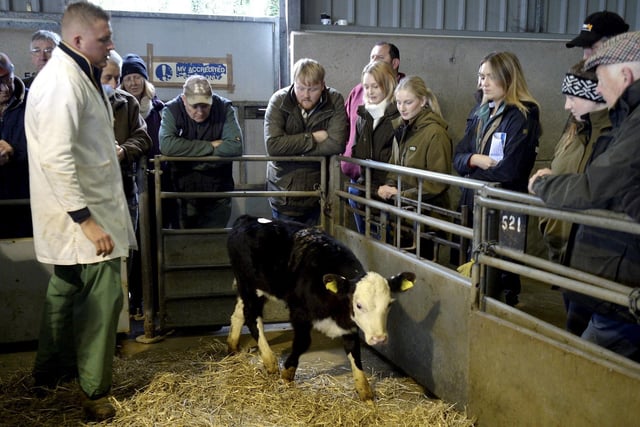
1. Auction
The trio at the cattle auction. Photo by Paul Nichols Photo: PAUL NICHOLLS
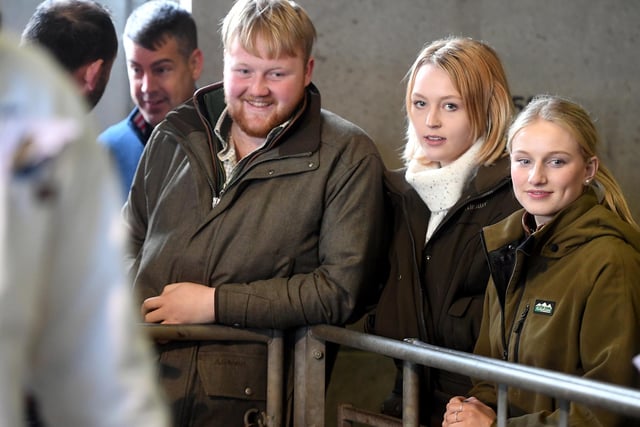
2. Smiles
Caitlyn Bartlett with Kaleb Cooper and Caitlin Oxton. Photo: PAUL NICHOLLS
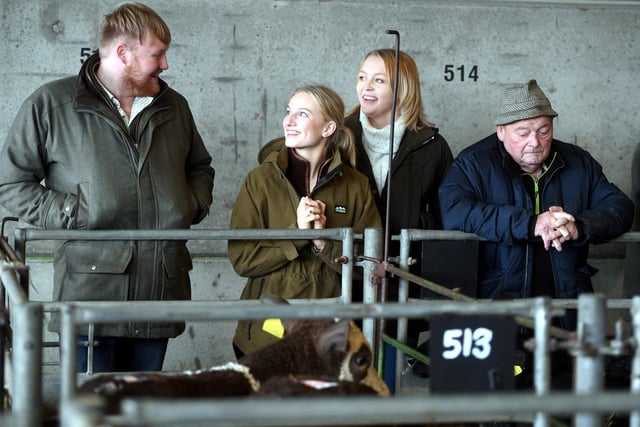
3. Comical
Caitlyn Bartlett with Kaleb Cooper and Caitlin Oxton. Photo: PAUL NICHOLLS
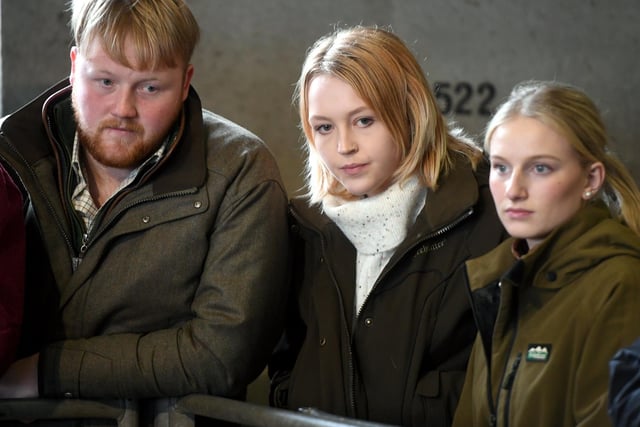
4. Serious
Caitlyn Bartlett with Kaleb Cooper and Caitlin Oxton. Photo: PAUL NICHOLLS
